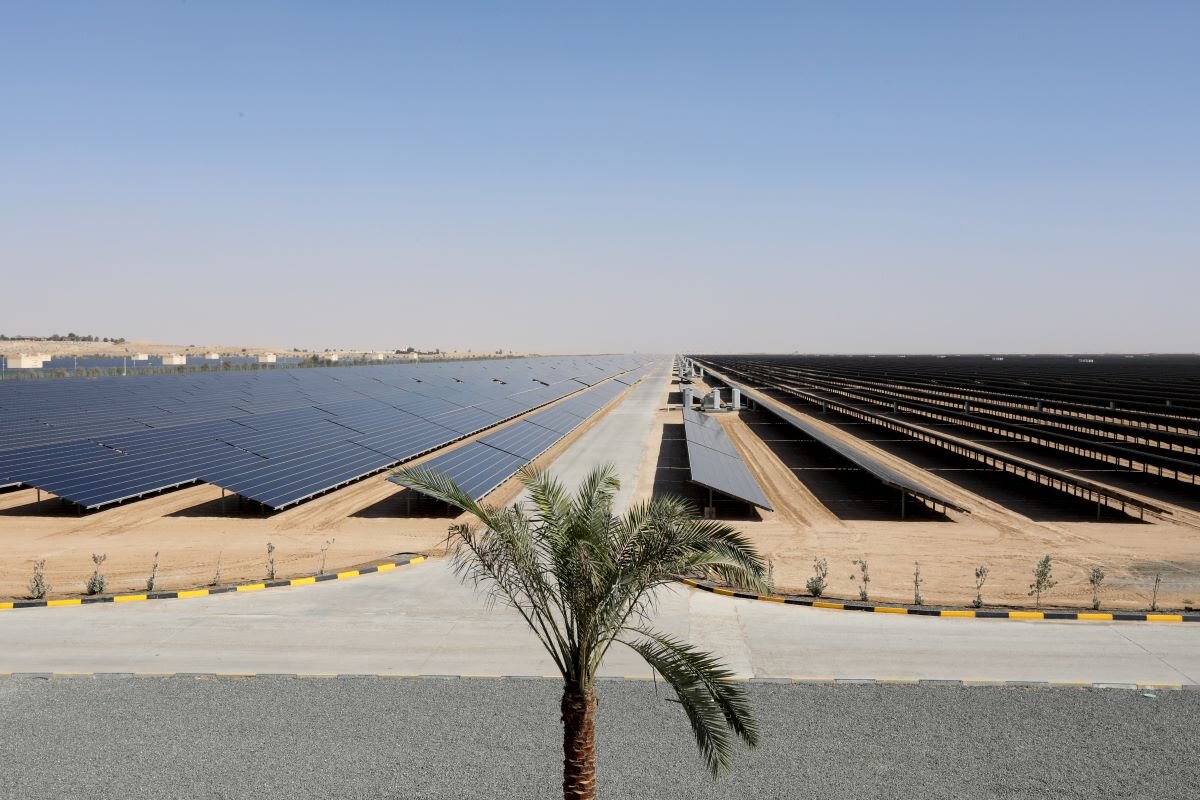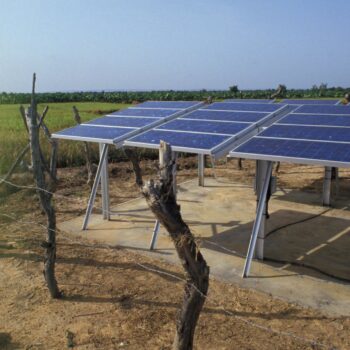This is the first of a new E3G blog series that dives deeper into the three core issues that COP28 will have to urgently address: speeding up decarbonisation, stepping up support for the most vulnerable, and shaping up the financial system.
A new package of emissions-slashing agreements at COP28 can set the world on a path to finally drive global emissions down, while ushering in a wave of economic modernisation under the climate transition.

UAE COP28 President Sultan Al Jaber has called for a “major course correction”, hoping an outcome at the Dubai summit can turn the tide on limiting global warming. There is a huge opportunity to harness the economic opportunities of the climate transition. Investments and policy direction set today will shape future prosperity, growth, and livelihoods in every country.
Yet global emissions are still rising. Rather than putting us on a path to peak emissions as soon as possible for global warming to stay below 1.5°C, current climate policies put us on track for warming of well over 2°C.
The UAE could be in the right place at the right time to broker a course-correcting deal. As a petrostate COP Presidency under criticism, the UAE will be looking to demonstrate its credibility by delivering climate wins.
But there are considerable global political and economic challenges to navigate that will require the Presidency to build political will and agreements beyond the UN climate negotiations.
The food and energy security consequences of a fossil-financed war in Ukraine are affecting national balance sheets and cost of living pressures everywhere. This draws developed countries’ political attention away from essential overseas climate financing.
It exacerbates debt stress for many developing countries facing the choice of a low emissions path, which requires more upfront capital investment.
The exorbitant cost of borrowing under the current global financing structures leaves many countries lacking the confidence to set more ambitious climate-resilient development policies.
Meanwhile, the USA’s Inflation Reduction Act has ushered in a new level of clean technology competition between major powers. This could be a race to the top, but unmanaged it risks locking emerging economies out of future growth markets.
Building the political conditions for ambitious agreements at COP28 will depend on addressing these financial and geopolitical impasses. New innovations and institutional revolutions are needed across the global finance system. There is political appetite for these, but they will take years.
In the near term, a new trend of investment deals and supply chain agreements offers a blueprint for unlocking confidence for climate ambition as a route to economic modernisation. Fractured global political alliances create geopolitical motivators for deal-making.
Drawing on its own modernisation journey as a developing country, the UAE is uniquely placed to secure breakthrough deals centred around Global South-led development pathways that are built on the clean economic transformation.
Four key outcomes
Outcomes in four broad areas could rise to these challenges and ensure COP28 bends the emissions curve and builds the new economy.
COP28 will be a stage for politicians and businesses to present and package up new commitments to headline emissions reduction targets, pledges to phase out of fossil fuels and ramp up renewable energy and energy efficiency deployment.
The IEA has put forward benchmarks such as scaling up energy efficiency by 4% per year and tripling renewable energy deployment, and the G7, EU and Major Economies Forum has already begun picking up these threads. Negotiated decisions agreed between all Parties – especially the political response to the Global Stocktake – will be a chance to set new global targets and agree processes for countries to deliver them.
An ambitious package of COP decisions would see countries aim to reduce emissions 43% by 2030 and 60% by 2035 below 2019 levels, as required to stay below 1.5°C. Ministers at COP28 could deliver this by agreeing to enhance their 2030 emissions reduction targets (including the sectors and greenhouse gases they cover) when submitting their next Nationally Determined Contribution due to set targets for 2035 before COP30. They could also agree global goals to accelerate the transition out of fossil fuels and into renewables.
New measures to hold climate actors accountable to their pledges can help ensure full delivery of commitments. COP decisions could strengthen systems for non-state actors to report progress against their climate transition plans aligned with the recommendations of the UN Secretary General High Level Expert Group on Net Zero.
COP decisions could also strengthen mechanisms for tracking progress by voluntary sectoral initiatives against their stated aims. This could include submitting reports, allowing transparent review under the spotlight of the annual COPs, or integrating mechanisms into processes like the Nationally Determined Contributions and the Mitigation Work Programme.
New investment pledges from governments and businesses at COP28 can inject momentum into the energy transition. Countries should prioritise their public support and subsidies fully towards the clean energy transition and explore new sources of public finance like taxing windfall profits made by energy sector companies because of high oil and gas prices.
In the oil and gas sector, adopting credible net zero transition plans covering Scope 1, 2 and 3 emissions with short-term pre-2030 targets aligned with a 1.5°C trajectory will be key, including for methane reduction and measures to end venting and flaring.
Finally, to make a real difference, COP28 outcomes need to be grounded in a practical, implementable form – not just rhetoric. Beyond the UNFCCC negotiations, countries need to see new mechanisms for finance providers and multilateral development banks to coordinate their assistance to seek out the multiple sources of public and private investment that will be needed.
New mechanisms could include regional and national platforms for public and private finance mobilisation, building from the lessons of Just Energy Transition Partnerships to date and encouraging the development of credible NDC Investment Plans.
Together, these could amount to a COP28 package that enables the world to turn the tide on decades of spiralling emissions while accelerating more countries on the journey to prosperous and sustainable development.


